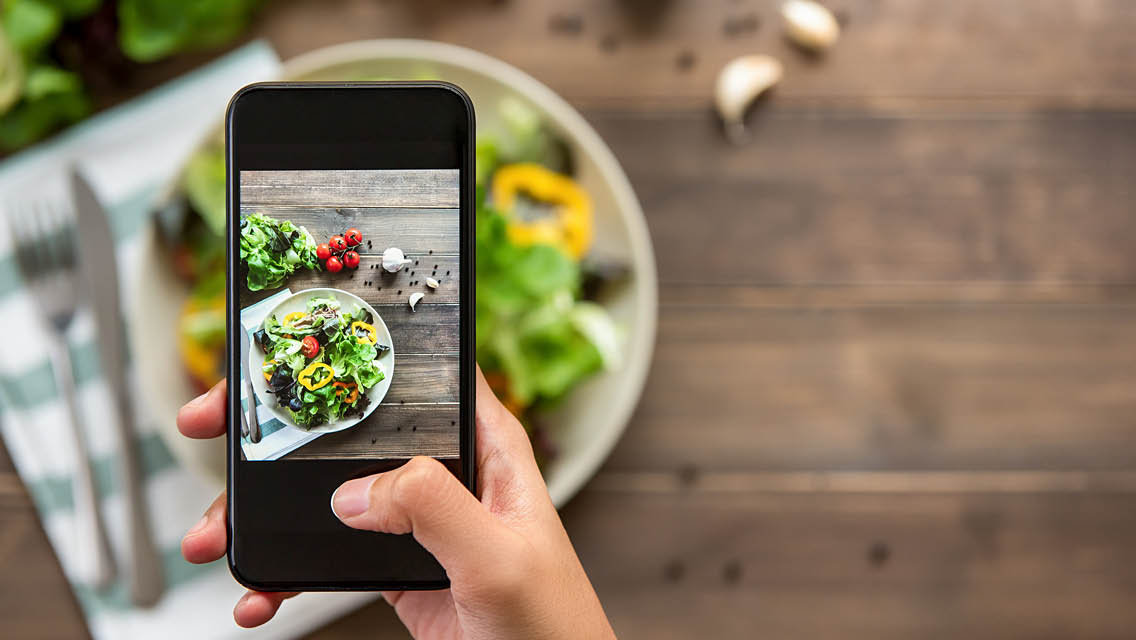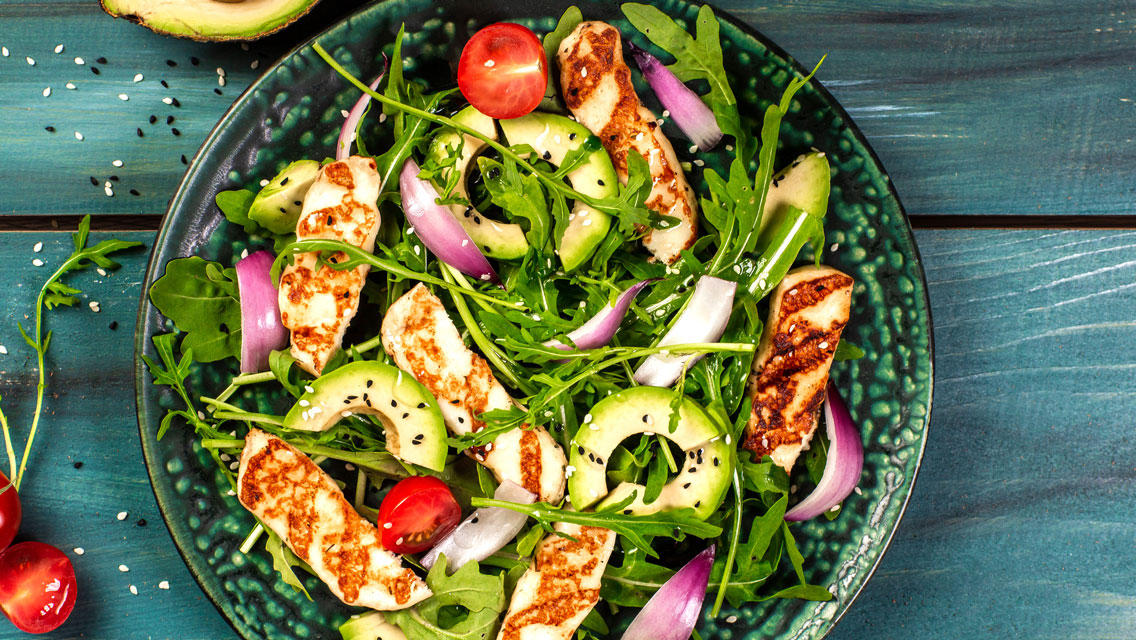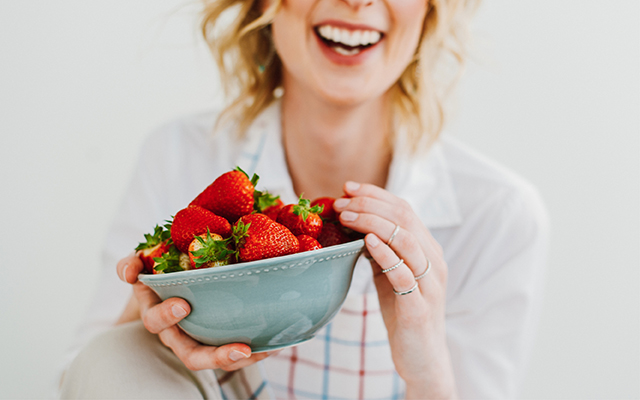Food diaries are nothing new. People have been using them for years to track caloric intake, adjust to a medically necessary diet, or identify allergies or triggers. But, like everything else, once food diaries went online, the concept took off.
Just googling “what I eat in a day” unleashes billions of results. The trend has especially proliferated on TikTok, where the wildly popular videos have been viewed millions of times.
These posts often feature a slim, conventionally good-looking person detailing every bite of food they consume in a given day, sometimes including meal-prep advice or recipe ideas. The dishes are aesthetically pleasing, the lighting is good, and the posts themselves may be tagged with weight-loss keywords.
The message is clear: Eat what I eat, and you can have this body.
There’s something compelling about peeking behind the curtain into someone’s life. But Charlotte Markey, PhD, a professor of psychology and health sciences at Rutgers University and the author of four books on body image, says it’s important to realize that most of the influencers you’re following online are trying to, well, influence you.
“Social media can be nefarious because it’s so quick and provocative, which makes it easy to forget that it’s not reality,” Markey explains.
Instead, what influencers share online is often determined by what they think their audience wants to see, or by what they’ve agreed to endorse on behalf of brands.
It’s hard to keep that in mind when you’re scrolling, admits Terri Griffith, PsyD, clinical coordinator of the intensive outpatient program at the Center for Eating Disorders at Sheppard Pratt. “Many of the individuals we treat report often comparing themselves to those they see in the media, like influencers sharing daily food diaries,” says Griffith. “They feel like they ‘can’t compare’ or be ‘good enough’ if they don’t eat like, look like, or seem as happy as what these content creators are portraying.”
The goal is to get better at telling yourself, Just because their job is to look good and convince me that I need those same things to also look good doesn’t mean it’s true.”
Even if the intention of a “what I eat in a day” post is to offer healthy inspiration, people coping with body-image issues or disordered eating may be tempted to compare their diet with someone else’s and find the experience more harmful than beneficial.
And because most influencers aren’t doctors or nutritionists, notes Pamela Ramos, MD, many of them — unwittingly or not — promote restrictive or otherwise unhealthy eating habits.
“Eating disorders are alive and well online,” says Ramos, who currently treats people with eating disorders in an outpatient setting. “I think one of the main problems we have had within the last 15 to 20 years is that a lot of disordered behaviors have been normalized.”
The experts we spoke with recommend treating this social-media content with healthy skepticism. They offer the following suggestions for resisting the lure of online diet diaries.
1) Consider Your Sources
“Any content creator can spread information based on their opinion or personal experience, which is not necessarily credible,” explains Griffith. Before you consider anyone’s ideas about food and diet, you should first identify their credentials — if they have any.
It’s helpful to think about the motive behind the posts, too: Influencing is a job, and many influencers get paid to promote supplements, weight-loss programs, and the like. Often, they sell these products by preying on our insecurities — namely, the need to be seen as beautiful so we can be fully loved or happy.
“The goal is to get better at telling yourself, Just because their job is to look good and convince me that I need those same things to also look good doesn’t mean it’s true,” Ramos says. “But it takes a fair amount of self-awareness to push back against those really polished messages.”
2) Know Your Needs
Most nutritional recommendations are one-size-fits-all, but the truth is that everyone has different dietary needs — in part because of individual differences in our genes, which affect (and are affected by) our food choices. This is one reason why someone else’s weight-loss strategy may not work for you, or why you feel good after drinking coffee while your best friend feels better avoiding caffeine. Basing your own diet on someone else’s food diary can make it more difficult to honor your body’s unique needs. (For more on bio-unique nutritional requirements, see “What Is Nutrigenomics?“)
3) Separate Food From Appearance
One of the more misleading aspects of “what I eat in a day” posts is that they invite viewers to associate those dietary choices with the thin, fit body promoting them. But it’s misleading to suggest that eating the same diet will make you look like your favorite influencer, Markey explains.
“We could eat the same thing and we’d all look different,” she says. “We’re genetically programmed to be a certain size and shape and height. Our behaviors and environments affect that to some extent, but not as much as some people think.”
4) Stay Empowered
To avoid going down an internet rabbit hole that can harm your self-worth or negatively impact your dietary choices, remember that you’re the one in charge of your social-media experience, says Griffith. You can turn your phone off, limit the time you spend on certain platforms, stop following people who damage your self-esteem, or mute harmful hashtags. (For more advice on building a healthier social-media feed, see “Can Social Media Encourage Disordered Eating Habits?“)
5) See the Big Picture
There’s a deep social need that we neglect when we think about food as simply a sum of calories, or when we try to contort our body’s needs to fit the illusion of someone else’s life. We miss out on the many other things that food can offer us: pleasure, energy, celebration, connection to our own history and ancestors, knowledge of other cultures, as well as tradition and communion with our loved ones.
“Food is so much more than health and weight,” Ramos says, “and we tend to forget that.”
Kids and Online Food Content
While it’s hard enough for adults to resist the allure of online diet advice, the challenges for kids can be even greater. These experts offer thoughts for talking to your children about what they’re seeing on social media.
Start the Conversation.
Terri Griffith, PsyD, tells parents to invite children to open up about what they’re seeing online without judging their choices; kids are likely to shut down emotionally if they are shamed or forced off social media without a conversation.
“It’s about creating space for communication and education,” says Charlotte Markey, PhD. And communication must happen before you can set any effective boundaries.
Model Healthy Behavior.
Be willing to examine your own habits and consider what your kids are absorbing from your behavior, Griffith advises. Ask yourself if you are consuming lots of weight-loss advice or if you’re hyperfocused on diet.
“If so, being a better example for your children to model can be just as important as what you say to them,” she says.
Watch Your Language.
Most of us could stand to retool our language when discussing food and diet. “We need to stop saying, ‘This food is healthy and this food is not healthy,’” says Pamela Ramos, MD.
Instead, focus on moderation and balance, and use a calm tone and neutral language to talk about food choices. Fruit juice isn’t necessarily bad, for example, but Ramos argues that drinking 10 juice boxes in a row won’t make you feel good.
Teach Skepticism Early.
Talking with your kids about social media sooner rather than later is crucial, says Markey. When your child starts using their first phone or iPad, “it’s the optimal time to sit down with them and use social media while you’re supervising them and having a conversation,” she advises. “Ask your kids, ‘Do you think that’s good advice?’ or ‘Doesn’t that look like it’s fake?’ Model questioning from the get-go so they learn to approach social media with skepticism, and so they can see that while this may be entertaining, it might not be real or reliable.”
This article originally appeared as “Your Diet on Influencing” in the May 2023 issue of Experience Life.





This Post Has 0 Comments